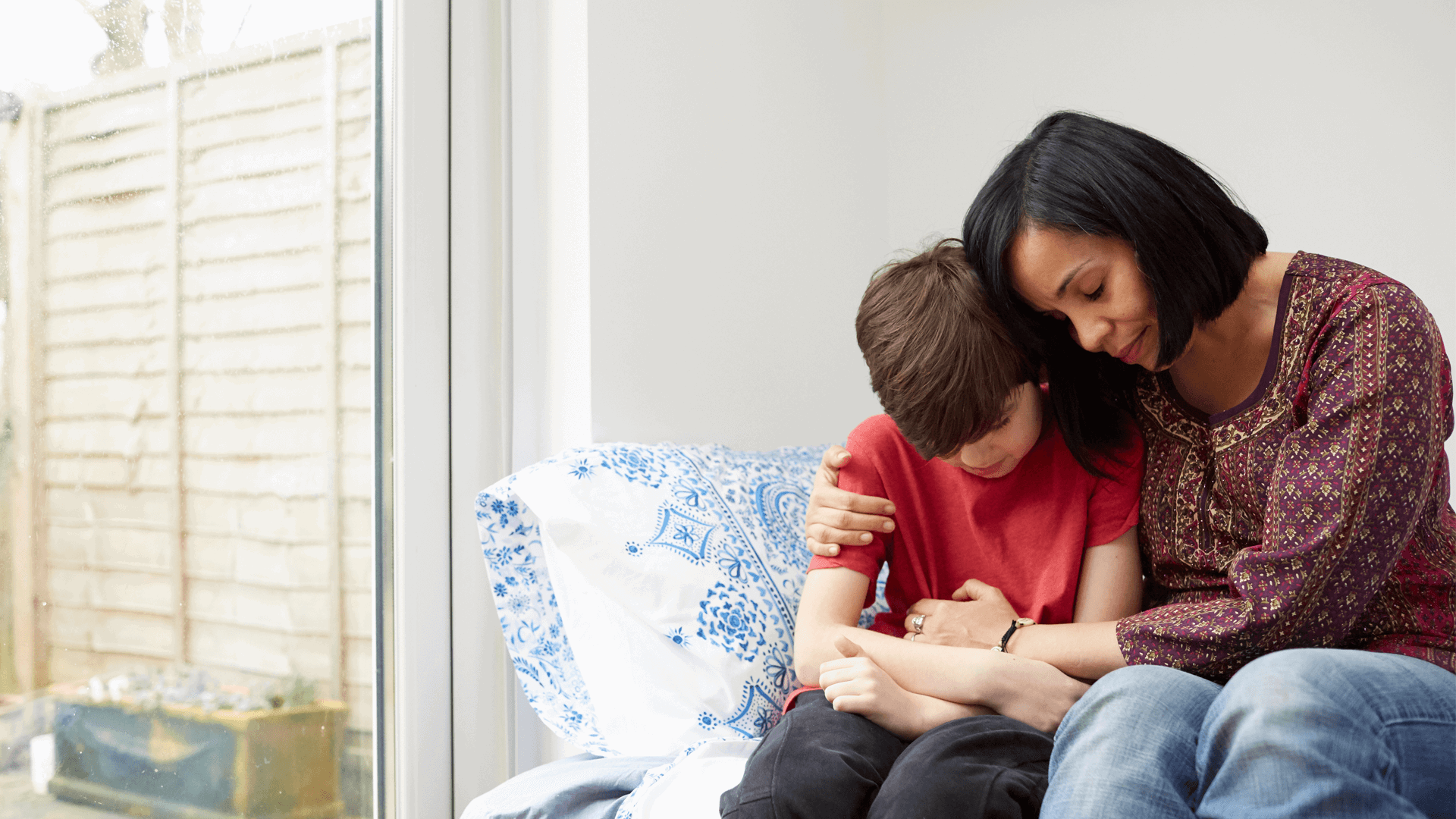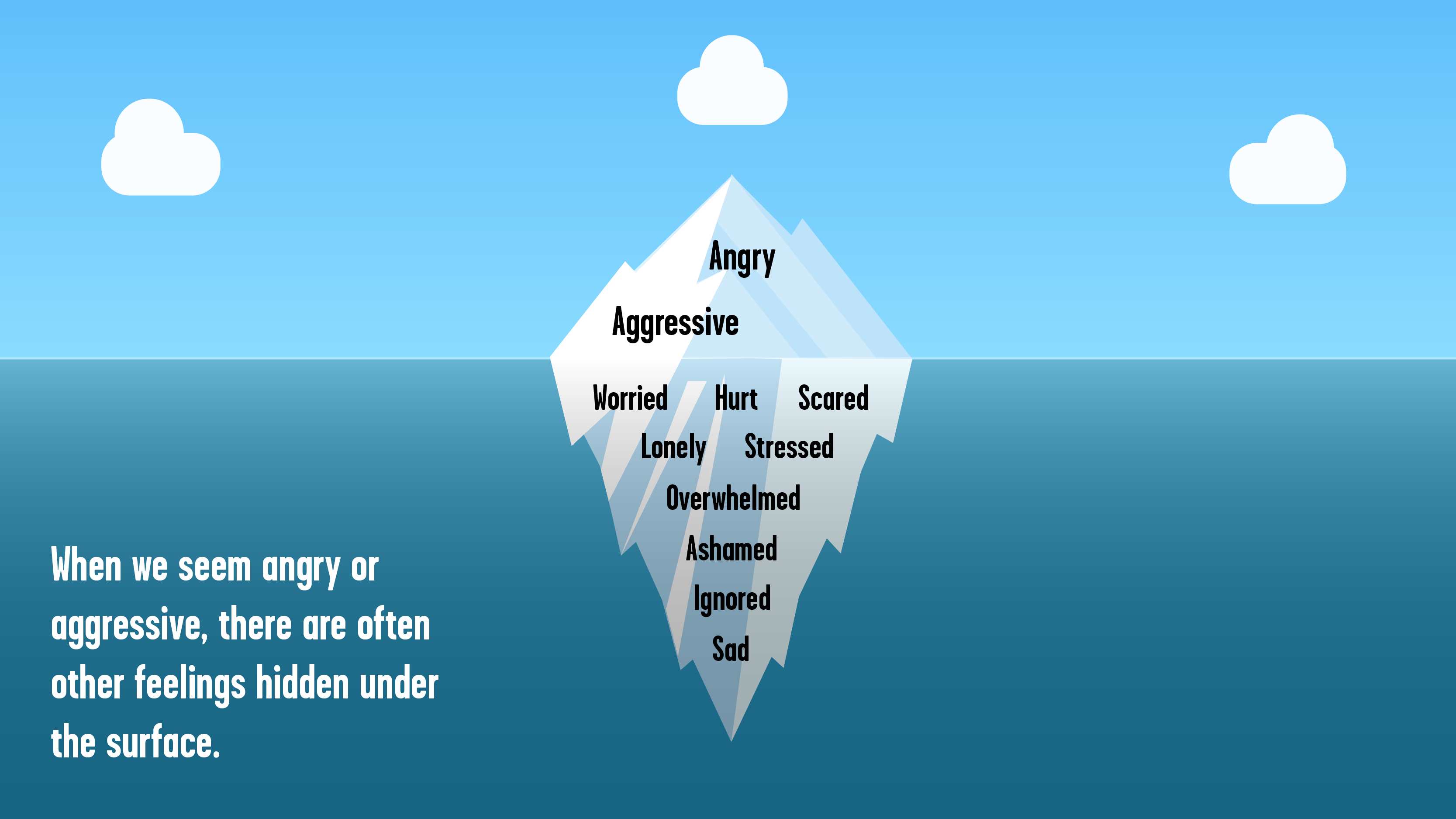
Parenting is an incredibly rewarding and challenging experience.
At times, it can feel like a real rollercoaster of emotions – particularly when your child is behaving in ways that are difficult to manage and understand.
Children’s behaviour can be challenging in different ways at different stages. Often, this behaviour is developmentally ‘normal’, which means it fits with the age they have reached. Sometimes, however, a child’s challenging behaviour becomes more frequent and difficult to manage. When this is the case, daily life can become exhausting for you as a parent.
Remember it is possible to come through this – with support, your child can find healthier ways to express and manage their feelings, and both of you can experience a more positive family life.
Be kind to yourself. Keep reminding yourself that you are doing your best, even if you wish you might have handled something differently that day.
What is challenging behaviour?

Just like us, children behave differently at different times. Feeling upset, sad, cross, frustrated and lots of other kinds of emotions is a normal and healthy part of their life. Many children go through phases of testing boundaries, and they are likely to behave in ways that are harder to manage when they are tired, ill or stressed. It is normal for younger children to have tantrums sometimes, while older children may sometimes shout, storm out or lash out.
When we talk about ‘challenging behaviour’, we mean behaviours that are persistent and difficult for both you and your child to manage. This includes things like:
- having lots of angry outbursts
- regularly shouting, swearing and being very argumentative
- frequently hitting, biting or kicking others
- kicking, smashing or damaging things in their home or school
- being unkind or bullying towards other family members or children
- persistently getting into trouble at school
Challenging behaviour is exhausting and demoralising. In our family it often leads to everyone feeling less positive and only picking out the negative behaviours, which is so hard not to do. When we notice that we have all gotten stuck in a negative rut, we make an effort to pick up on and name some positives, however small, and this helps us move through a difficult time.
How can I talk to my child about their behaviour?

An iceberg submerged in water, with the text 'When we seem angry or aggressive, there are often other feelings hidden under the surface'. The words Angry and Aggressive are displayed on the section of the iceberg above the water, and the words Worried, Hurt, Scared, Lonely, Stressed, Overwhelmed, Ashamed, Ignored, Sad are displayed on the iceberg below the water.
Your child's behaviour is a means of communicating how they’re feeling. When your child is acting out, it can be useful to think of an iceberg. The difficult behaviour is the tip, but there are likely to be a range of emotions hidden under the surface.
By opening up a conversation with your child, you can find out more about how they’re feeling and what’s going on for them.
-
Find a suitable time and place to talk
Your child might find it easier to talk if you start the conversation while doing an activity.
-
Make it clear that the behaviour is the problem, not them
Let them know that it’s okay to feel however they feel - whether that’s sad, angry, worried or something else - and that you can work together to find new ways of managing these feelings.
-
Explain why the behaviour is not okay so they understand
For example, you might say that while it’s normal to feel angry, it hurts other people when they hit.
-
Be curious, empathetic and non-judgmental
Focus on listening and trying to understand things from their perspective.
-
Use simple phrases
Try to use simple phrases such as:
- "I notice there is a lot of shouting happening."
- "I think something might be upsetting you."
- "I feel worried you’re not happy."
- "I need you to know you can talk to me about what’s going on."
-
Reassure them
Reassure them that you love them and want to help them feel happier and enjoy things again.
How can I help my child?
You could do this by creating a family agreement covering things like screen-time limits, family meals and times for getting up and going to bed.
Your child may respond better if you give a warning before the consequence, so they have an opportunity to change their behaviour. After the consequence has been given, it’s important to chat together about what happened and return to positive interactions.
Notice and encourage them when they demonstrate the kinds of behaviours you have asked for, and be specific about why you’re praising them.
This might be drawing or painting, doing something active like running, jumping or their favourite sport, reading a book, writing a story, baking or making something out of playdough or Lego.
When you are curious about your child's feelings, this helps them understand and find words to describe them. You can also help them think about the signs that let them know they might be about to ‘blow their top’ – such as feeling hot, muscles clenching or breathing more heavily.
You may feel frustrated, angry or overwhelmed when your child is behaving in challenging ways – and this is completely normal. Try not to react or argue back when things are like this. Give yourself and your child a chance to have some space before you talk about it.
Find things you can enjoy together – such as going to the park, playing a board game, cooking something or watching a favourite film. As a parent you will often be juggling different things, so try to set aside time when you can be really present with your child.
Share your concerns with their teacher and find out what their experience is. How does your child behave at school? Is it similar or different to the way they behave at home? If your child’s teacher has found something that works, it may be helpful to try it at home to provide consistency.
Download our full guide to challenging behaviour below.
Finding professional help
If your child needs support to help them understand and manage their feelings, they may benefit from seeing a counsellor or therapist. Therapists working with younger children will usually do this through play and arts activities such as painting, drawing and making things.
You can find out how to access counselling by reading our guide.
As well as counselling, there may be other services provided by your child’s school that can help, such as mentoring, learning support, peer buddying and clubs and activities. Be open with the school about what’s going on and ask what support they can provide.
If you’re worried about your child’s mental health or wellbeing, you can speak to your GP (with or without your child) about next steps and finding support. Together you can discuss whether referral to Child and Adolescent Mental Health Services (CAMHS) and/or an assessment by a mental health specialist is needed.
Sometimes, challenging behaviour can be a sign of an additional need or developmental difficulty – such as autism or difficulties hearing or speaking – which your child may need specialist help with. If you think this could be the case, speak to your GP or your child’s teacher to discuss whether your child needs a referral for further assessment.
Looking after yourself
Supporting a child who is behaving in challenging ways can be an exhausting task. Don’t be hard on yourself or your abilities as a parent, and remember that lots of children demonstrate challenging behaviour at some point. In order to support your child, you need to keep looking after yourself by talking to friends, family and anyone else in your support network, taking time out and asking for help when you need it.
Many parents find it helpful to reach out to other parents so they can talk through how they have handled difficult situations with their children and get some support. You can connect with other parents by:
- using the Charlie Waller Trust directory to see if there’s a local parent support group in your area
- accessing peer and group parent support through Parenting Mental Health
- joining Facebook or other online groups
- setting up your own parent support group using our guide
Where to get further support
Useful helplines and websites
-
Family Line
Provides information and support around family issues, as well as longer-term help through Befrienders and Counsellors.
- Opening times:
- 9am - 9pm, Monday - Friday
-
Gingerbread
Support for single parents in England and Wales including advice and information on child support, benefits, tax credits and your child’s contact with their other parent.
- Opening times:
- Mon 10am-6pm, Tues, Thurs & Fri 10am-4pm, Wed: 10am-1pm and 5pm-7pm
-
Contact
Provides support, information and advice for families with children with disabilities.
Free online chat service available.
- Opening times:
- 9.30am - 5pm, Monday - Friday
-
One Parent Families Scotland
Provides support, information and advice for single parents in Scotland.
Online chat service available.
- Opening times:
- 9.30am - 4pm, Monday - Friday
-
Childline
If you’re under 19 you can confidentially call, chat online or email about any problem big or small.
Sign up for a free Childline locker (real name or email address not needed) to use their free 1-2-1 counsellor chat and email support service.
Can provide a BSL interpreter if you are deaf or hearing-impaired.
Hosts online message boards where you can share your experiences, have fun and get support from other young people in similar situations.
- Opening times:
- 24/7